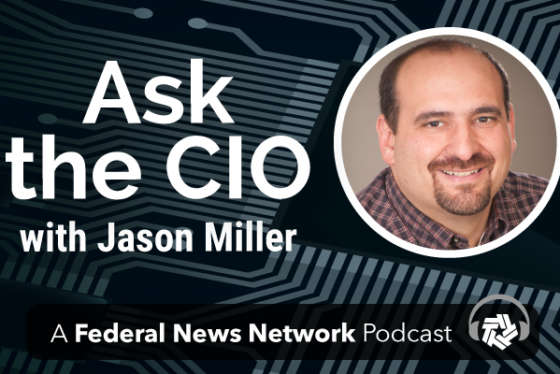The Affordable Care Act is giving the Centers for Medicare and Medicaid Services an unexpected push toward shared services.
Tony Trenkle, the CMS chief information officer, said as the agency and its parent, the Department of Health and Human Services, were analyzing the provisions of the law and found at least four near term opportunities to create enterprisewide shared services.
Trenkle said CMS is leading an effort to develop the foundation for identity management, an enterprise portal, a master data management scheme and a business rules engine.
“We stood up separate program management office to begin to work through how we deal with that operationally as well as in the development stage,” he said. “We are testing various models of how we can do work more efficiently and effectively and then hope to promulgate some of those lessons learned throughout not only my organization, but throughout the rest of the agency.”
Along with shared services, Trenkle said the other models his office is testing are looking at drawing IT specialists from each CMS core competency to work together in a new innovation center to address short and long term challenges. CMS also has a group looking at the business side of insurance exchanges, and how they could use agile development and other types of approaches to respond to business needs.
“The one for the exchanges we’ve been working on it for past year-and-a-half. The one for the innovation center we’ve been working on for the past six months or so. The shared services PMO has been stood up for less than a year. They are all in early stages of development,” he said. “There are a number of metrics you can use to determine success, one of which is business owner satisfaction. We’ve found since we’ve stood up several of these models we’ve found a much higher sense of business owner satisfaction with the work we are doing because they feel we can respond much more quickly to their needs and basically we have embedded staff with them on a daily basis who can develop in a lot of cases much quicker requirements and go from requirements to implementation much quicker.”
A lot to do under ACA
CMS has several mandates under the Affordable Care Act and Trenkle said HHS and CMS executives saw an opportunity to share instead of pursuing individual investments that the department may not have been able to afford anyways. Trenkle said CMS already supported several identity management programs so consolidating them into one that serves HHS would be helpful and save money. “If you are having a number of providers or citizens coming into to do business with you, why not build a portal that you can tie in with identity management and with some of the business processes to centralize and streamline and provide a single face to the outside world,” he said.
CMS awarded SAIC in February a five-year, $78 million contract to provide enterprise remote identity proofing and multi-factor authentication credential services. SAIC said the technology will integrate the identity proofing and credential provisioning and minimize the risk of fraud.
The master data management scheme will help CMS use data for multiple programs and help them determine relationships between users and programs. He said an example would be if someone was eligible for a payment in one program, they may not be eligible for payment through another program. This master data scheme would help CMS make those decisions.
Access to, protection of data a high priority
A fourth shared service, a business rules engine, would let business processes more easily across different applications.
“The idea is over the next several years beginning with some of the major ACA projects but also going back to the other CMS programs that we build the foundation which we are doing now, we already have a lot of foundation work built for those shared services,” Trenkle said. “Second, we begin to deploy them through major ACA provisions, such as the insurance exchanges or dealing with accountable care organizations. Then thirdly look for efficiencies where we can consolidate and make more effective use of the IT we have here already.”
Along with the shared services, Trenkle said his other priorities include cybersecurity and cloud computing. He said all of these leads to providing better access to data.
“One of the things that have become clear with a number of these programs over the last several years whether they be quality programs, something like Hi-Tech or ACA, it’s obviously a lot of the future success around either bending the cost curve of healthcare or improving care depends on the quality, quantity, timeliness and ability to combine data in a way that allows people along with the proper business intelligence tools and other types of analytical tools to make much more quicker decisions about how we can make program changes, how we can analyze the impact of program changes and how we can look at different payment models,” he said.
RELATED STORIES:
CMS eyes $370M goal in stemming improper payments
Boughn aims to bring CMS systems out of the 1970s
HHS readying new health care innovation office
Copyright
© 2024 Federal News Network. All rights reserved. This website is not intended for users located within the European Economic Area.






